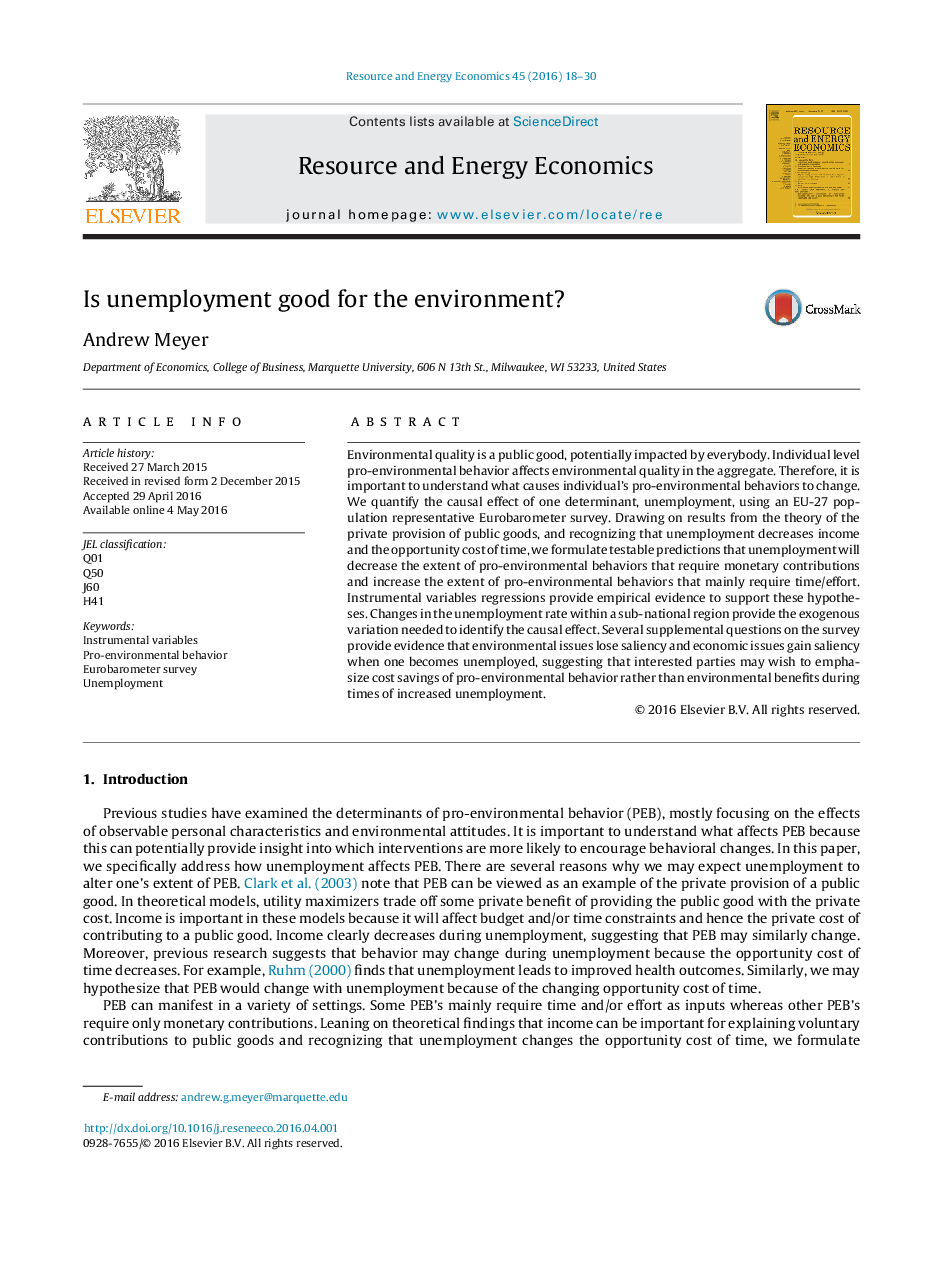| Article ID | Journal | Published Year | Pages | File Type |
|---|---|---|---|---|
| 985506 | Resource and Energy Economics | 2016 | 13 Pages |
•We analyze the effect of unemployment on pro-environmental behavior.•We utilize a representative sample of approximately 30,000 EU-27 individuals.•We instrument for individual unemployment with exogenous shocks to regional unemployment rates.•Results show that unemployment tends to increase time/effort-intensive behaviors.•In contrast, unemployment tends to decrease behaviors requiring financial contributions.
Environmental quality is a public good, potentially impacted by everybody. Individual level pro-environmental behavior affects environmental quality in the aggregate. Therefore, it is important to understand what causes individual’s pro-environmental behaviors to change. We quantify the causal effect of one determinant, unemployment, using an EU-27 population representative Eurobarometer survey. Drawing on results from the theory of the private provision of public goods, and recognizing that unemployment decreases income and the opportunity cost of time, we formulate testable predictions that unemployment will decrease the extent of pro-environmental behaviors that require monetary contributions and increase the extent of pro-environmental behaviors that mainly require time/effort. Instrumental variables regressions provide empirical evidence to support these hypotheses. Changes in the unemployment rate within a sub-national region provide the exogenous variation needed to identify the causal effect. Several supplemental questions on the survey provide evidence that environmental issues lose saliency and economic issues gain saliency when one becomes unemployed, suggesting that interested parties may wish to emphasize cost savings of pro-environmental behavior rather than environmental benefits during times of increased unemployment.
